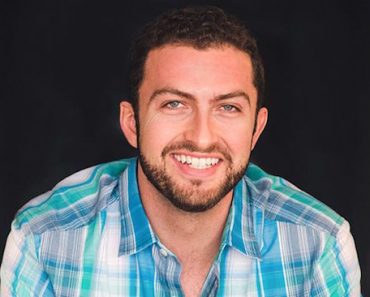Emily Fletcher is the founder of Ziva Meditation. Her mission is to make meditation attractive and accessible to people who are ready to level-up their performance and their lives. Recently featured in The New York Times, named top 100 women in wellness to watch and regarded as one of the leading experts in Vedic meditation, Emily has been invited by companies like Google, Barclays Bank, sweetgreen, & Viacom to help improve company performance through meditation.
Emily has been invited to speak at Harvard Business School, Bulletproof Biohacking Conference, Summit Series, A-Fest and The Omega Center. So far, she has taught over 2,800 people to become self-sufficient meditators with this game changing practice to take with them for life.
What inspired you to start Ziva Meditation?
During my 10 year career on Broadway I was performing in the musical A Chorus Line and was an understudy for three different parts at the same time. It was incredibly high demand and I started having insomnia, going gray at 26, and getting sick and injured.
I asked the woman sitting next to me in the dressing room (who was understudying five roles) how she was able to perform her job with such ease. Her answer was simple: “I meditate.” I finally signed up for a four day course, and after the first day of the course I slept through the night for the first time in 18 months.
I realized that this practice was a total game-changer, and after seeing how it totally changed my life for the better, I felt inspired to share it with others.
How does zivaMIND allow you to reach even more people who want training in meditation?
I created zivaMIND (the world’s first online meditation training) because I wanted to be able to share this amazing practice with as many people as possible, and obviously not everyone has access to one of my Intro Talks in NYC or LA.
I designed the program to be a gentler (but still super-effective) variation of the in-person course, so it’s safe to do without one-on-one guidance from a teacher.
That being said, in my opinion one of the greatest things about the program is that it includes access to an online community of meditators, so you can link up with people who are learning at the same time and get your questions answered. Because that’s the ultimate goal- to give people all over the world the opportunity to cultivate a sustainable meditation practice, and to give them the support they need to do so.
What draws you to the tradition of Vedic meditation in particular?
While other styles were made for monks, this style of meditation was made for “householders”- people who have busy minds and busy lives. If you have less time, you want to use a practice that is more powerful so you can really deep clean and bring the sparkliest version of you to every situation.
Additionally, Vedic meditation is unique because it’s not about focus. In fact, it’s the opposite- it gives the body rest that is 5 times deeper than sleep. This deep rest is what makes you more focused in your waking state.
Another thing that makes the practice so special is that once you go through the training you are a totally self-sufficient meditator. This means you can meditate anywhere, anytime.
At Ziva, we also offer mindfulness techniques to help people perform at the top of their game from the boardroom to the bedroom. The purity of the 6,000-year-old practice is not lost, but the delivery is super accessible, relatable, and even entertaining.
In your own experience, what’s helped you to maintain a regular meditation practice?
I do 20 minutes twice a day, non-negotiable — it’s the most important part of my daily routine. After a while it becomes a habit, and it gets easier and easier to work your meditations into your day.
If you’re just starting out, the key to staying consistent with your meditation is to schedule it. Put your sessions on your calendar like you would a lunch date with your best friend or a meeting with your lawyer. When your reminder goes off, stop whatever you’re doing and take the time for yourself to meditate. The way you feel afterwards will make you want to stay committed to your practice.
For people who’ve always wanted to start meditating regularly but haven’t done so yet, what’s your advice?
1. Do it.
2. Find a teacher that you respect. Many people think meditation is hard, but those people usually don’t have any training. Meditation is like any other skill: it takes a bit of practice and a good teacher, and then I promise it can be enjoyable.
3. Know that thoughts are not the enemy of meditation. People often think that you need to command your mind to stop thinking. This is as effective as commanding your heart to stop beating; it doesn’t work. Learn a technique that you enjoy and that doesn’t make you feel like a failure every time you have a thought.







